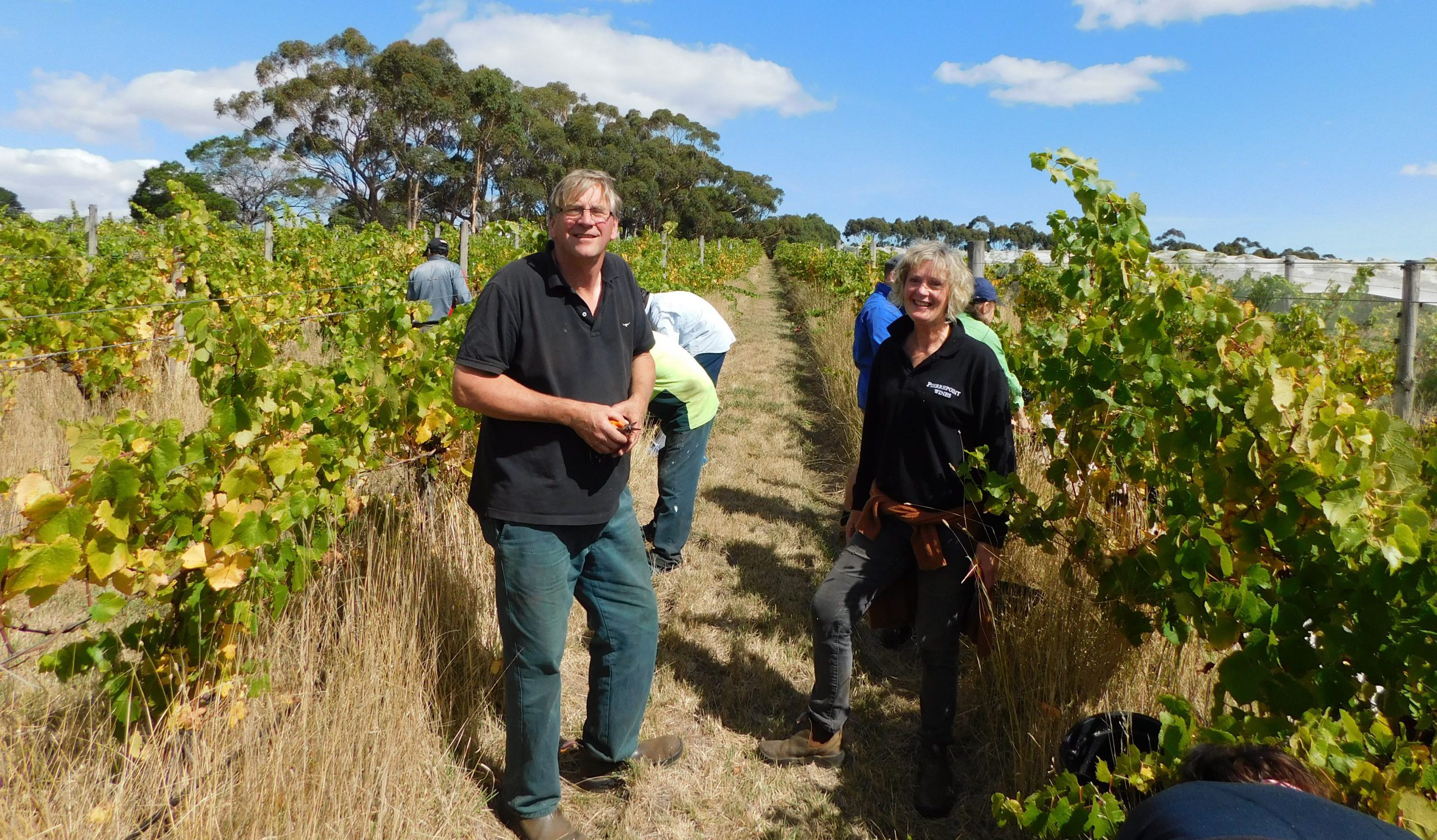The grape harvest is nearly over at Pierrepoint Wines, near Hamilton in Victoria’s south-west. It’s one of the largest vineyards in the region, and owners Andrew and Jennifer Lacey have spent much of the past fortnight picking the 40 tonnes of pinot noir and pinot grisand chardonnay grapes that grow across 15 acres of their land.
In past years, the Laceys could rely on up to 40 people to help them pick their crop, many of whom were backpackers. But this year, COVID-19 restrictions have kept overseas workers away.
“It’s never been as bad as this,” said Mrs Lacey, who’s been hard at work just trying to make up the numbers. “We’ve always been able to rely on contractors.”
Contractors, who primarily employ people here on working holiday visas, have been Pierrepoint’s main source of labour since the business was established in 1998.

Pierrepoint Wines has in the past received workers from contractors around south-west Victoria and as far away as Geelong.
“Those contractors somehow become known to the international backpackers,” Mrs Lacey said. “They then put their names with the contractor, and the contractor finds work for them and pays them.”
Contract work makes up a large part of Australia’s agricultural labour force. According to federal Department of Agriculture data from between July 2018 and June 2019, it accounted for around of third of labour, with as many as 150 thousand people per month finding work this way. Of those, nearly 45% come from overseas.

In 2020, the grape harvest season was wrapping up when COVID-19 was declared a pandemic and hard travel restrictions came into place.
“Last year, the majority of our work force were backpackers … and then they were stuck here,” said Mrs Lacey, “and a lot of them lived down in Heywood and they’re still living in this area … and they’re doing odd jobs around.”
But with no other travellers able to come in and work, the competition for local pickers has been fierce.
“We’ve gone from last year having majority backpackers … to this year having to really struggle sharing locals with vineyards down south.”
And sharing the available pickers has presented its own challenges for Mrs Lacey.

“I spent hours on the phone trying to organise pickers. And the problem I’m confronted with now: The Heywood vineyard was picking Tuesday, Wednesday, Thursday, not picking Friday.”
“So we decided we’d pick Friday using eight of the pickers. Well they’ve all of a sudden decided to do a small pick on Friday morning.”
“If I’m lucky I’ll have a small number of those eight pickers … that’ll come up for half the day Friday.”
Some growers have been able to get by with very few workers. One grower has “actually been using apprentices on the weekends to do his pick. But he’s making his wine on site so he can only handle a small amount of fruit every day. So he doesn’t need as many pickers as we do.”
“We’d be one of the only (grape growers) left in Hamilton now that are so big and need the labour.”
Mrs Lacey has still been able to obtain some contract workers from Horsham, Stawell, and Naracoorte in South Australia, but has also been seeking workers by asking for applications locally through the Pierrepoint Wines Facebook page. It’s had some success in attracting new applicants, but has also had some shortcomings.
Frustratingly, some people applied without leaving any contact details, which makes it nearly impossible to chase them up.

“Another thing I’m having trouble with is that a lot of these locals, particularly if they’re doing it through Facebook, they’re applying for a job because they have to (as part of federal welfare programs), so they apply for them but then don’t turn up. And they don’t know what impact that has.”
“If I’ve got 34 people organised and that’s my team that I desperately need to get 18 bins picked, and half of them don’t turn up, I’m not gonna get those picked.
“That’s why we don’t like to use a lot of local people if we don’t know them.”
But Mrs Lacey has had no choice but to hope the best and make do with whoever arrives. And it has largely worked out. The Laceys expect to eventually pick the entire harvest. It will just take longer than usual.
And with this year’s harvest nearly over, thoughts already turn to next year and the hope that things will get back to normal.


